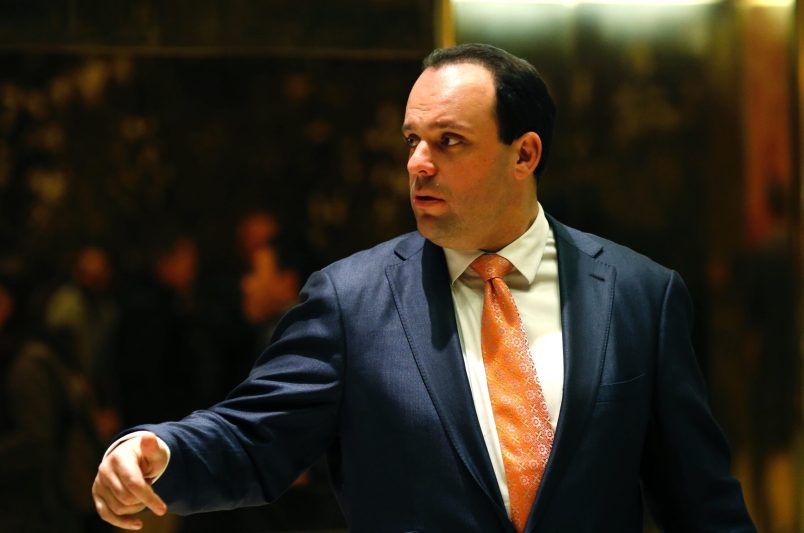In Tuesday morning’s Times, David Brooks has a column summing up Bush administration fiscal policy. The gist of his argument is that the president’s policies stack up pretty well in a short-term calculus, though not so well over the longer-term.
The key, however — and here Brooks provides a crucial explanation — is that the president’s budget planners did a reasonably good job given the adverse circumstances they confronted after the president’s inauguration.
The key two grafs are these …
Their first answer, not surprisingly, is that you have to understand the reality that confronted them when they took office in 2001. Business leaders were calling in to say that economic activity was falling off a cliff. The dot-com bubble was over, manufacturing was getting hit, business confidence was plummeting. Before it became a general concern in the papers, administration folks were worrying that the U.S. might go through a Japanese-style stagnation. Deflation was an unlikely but scary possibility.
They decided to do what was necessary to head off any immediate catastrophe. As Stephen Friedman, director of the National Economic Council, sums it up, “We didn’t want to err on the light side when it comes to stimulus.” Hence, the large tax cuts.
Hence? Actually, not so hence?
Brooks’ column breathes an air of fair-minded, even-handed perusal. But here in this short passage we <$Ad$>have the hinge of mendacity on which the whole column turns. To be fair, what Brooks is describing is the administration’s response to criticisms of their economic stewardship. So let’s give him the benefit of the doubt and call it their dishonesty rather than his, though he says not a thing in the piece to challenge this disingenuous argument and implicitly affirms it throughout.
In any case, to our point …
Did the Bush White House face the sort of incipient economic catastrophe described above? The White House went to great lengths at the time to argue that it was. I’ll leave it to people who actually have a solid grasp of macro-economics and statistical analysis to get to the bottom of that question. But we needn’t get to the bottom of it to answer the question we’re dealing with here.
The signs of economic downturn the country faced in the spring of 2001 weren’t the reason the Bush White House pushed through such massive tax cuts. They were simply a convenient rationale the White House chose for a policy embraced for entirely different reasons.
The evidence for this claim is, I think, inescapable.
The Bush tax cut was passed in the spring of 2001. But the policy was promulgated more than a year earlier, at the beginning of December 1999 — long before the warnings signs Brooks mentions appeared, and while the dot.com bubble had yet to burst.
For the first year after the president introduced his tax cut plan, he argued for it with two basic propositions.
One was equity — people were simply paying too much in taxes, and cutting taxes would help people get into the middle class, etc.
The second argument was about the surplus. Then-candidate Bush argued that the federal government simply couldn’t be trusted with the hundreds of billions of dollars which were then thought to be piling up in the federal treasury. The answer was to refund the sum back to individual taxpayers.
Those are the arguments the president focused on in the speech he gave introducing his plan on December 1st 1999. Only deep down into the speech did he add another argument — that tax cuts would keep the boom going and protect the surplus …
Yet I also believe in tax cuts for a another practical reason: because they provide insurance against economic recession. Sometimes economists are wrong. I can remember recoveries that were supposed to end, but didn’t. And recessions that weren’t supposed to happen, but did. I hope for continued growth â but it is not guaranteed. A president must work for the best case, and prepare for the worst. There is a great deal at stake. A recession would doom our balanced budget. It would leave far less money to strengthen Social Security and Medicare. But, if delayed until a downturn begins, tax cuts would come too late to prevent a recession. Putting more wealth in the hands of the earners and creators of wealth â now, before trouble comes â would give our current expansion a timely second wind. Our times allow a substantial tax cut. Integrity requires that it also be a realistic and responsible tax cut. My plan is realistic because it avoids meaningless 15-year budget projections. It is not based on inflated growth estimates.
We could go on about this at length. But the point, I think, is clear. The White House wasn’t forced into deep tax cuts with destructive long-term consequences because of an economic emergency they found when they came into office. They came up with the plan when the economy was roaring.
The true reason and impetus for the Bush tax cut was not economic — in the sense of reactions to cyclical developments in the economy — but ideological. For the authors of the plan, the tax cut was a justification in itself; the White House simply grasped on to whatever explanation made most sense at the given moment to advance it. That’s why a plan devised at the height of a boom — to cull an oversized surplus — made equally great sense when the economy was in free-fall. The policy was driving the rationale, not the other way around.
This new argument — that the White House pushed through big tax cuts because of the economic slow-down of early 2001 — is simply an effort to retrospectively exonerate reckless and dishonest behavior which was demonstrably reckless and dishonest at the time. Columnists should challenge that sort of mendacity, not abet it.







